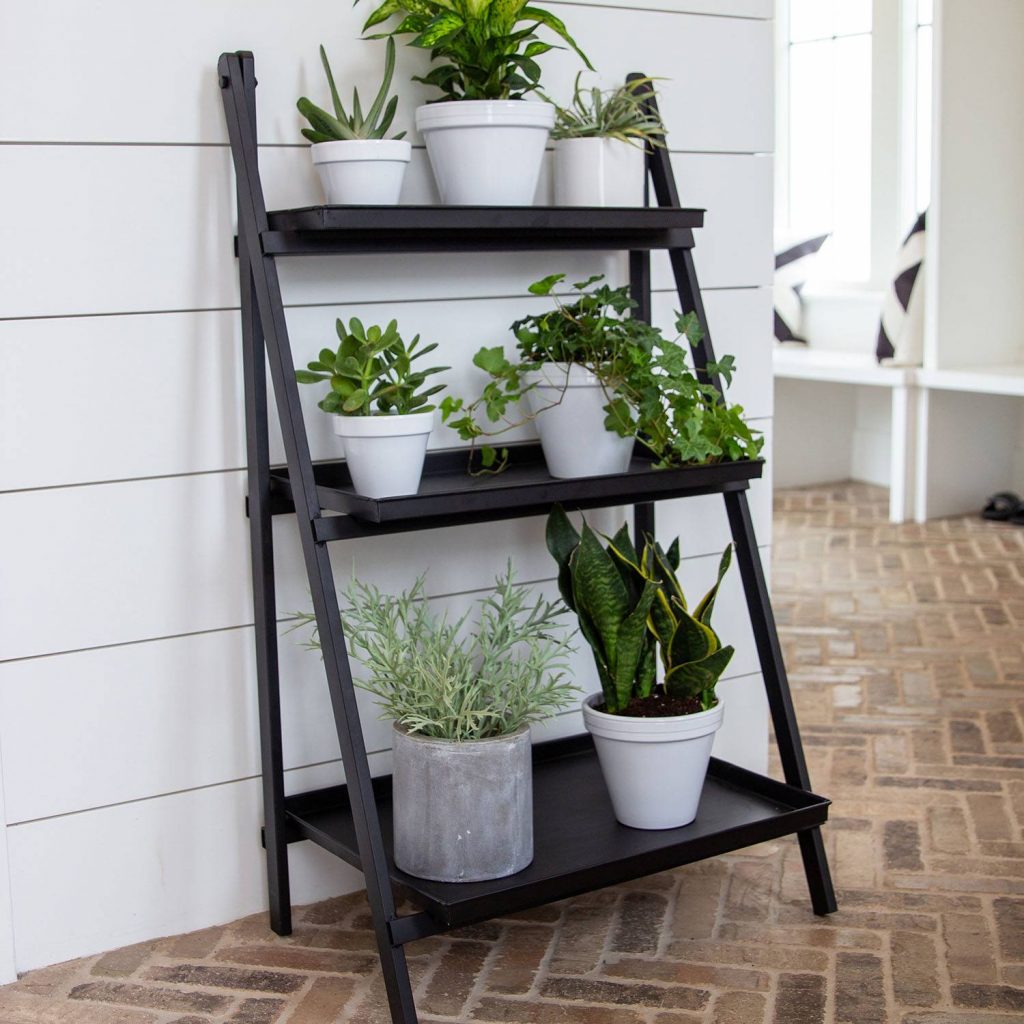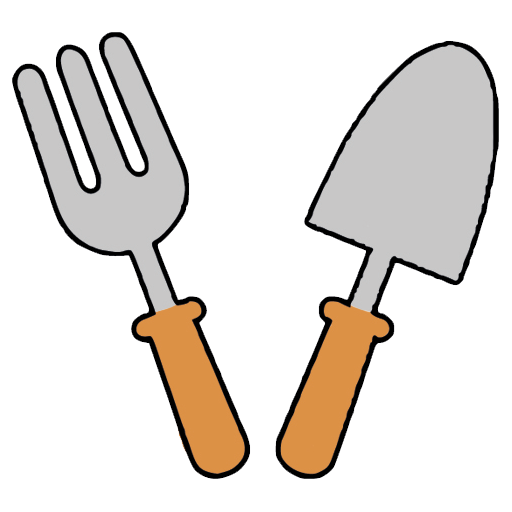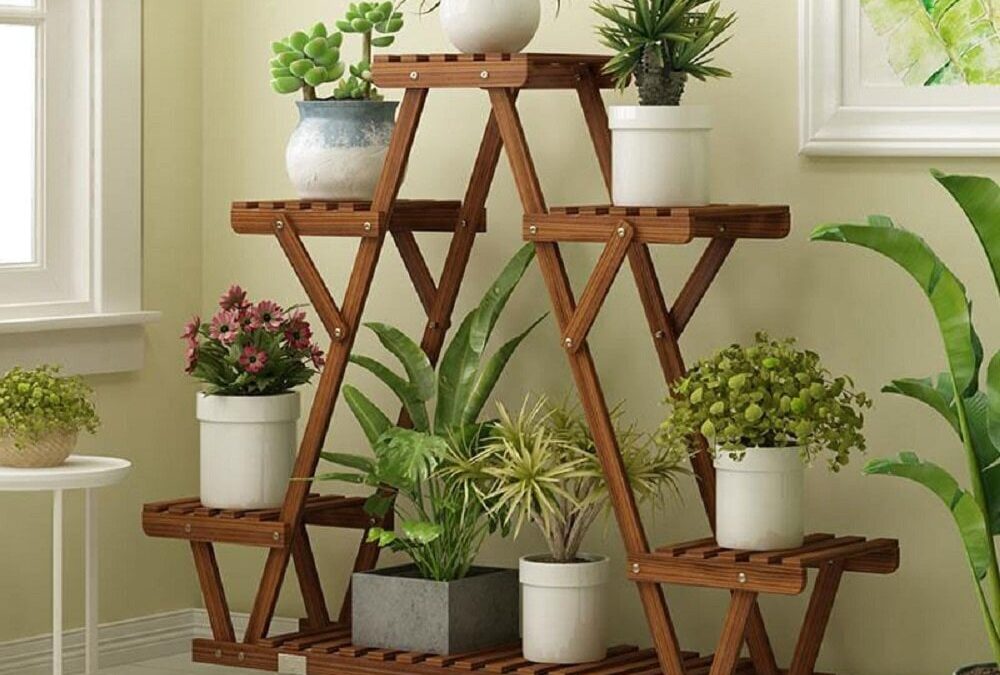Contents
- 1 Best Indoor Plant Stands for Small Spaces (Make the Most of Every Corner)
- 1.1 Why Plant Stands Are So Useful in Small Homes
- 1.2 1. Tiered Plant Stands (Maximum Plants, Minimum Floor Space)
- 1.3 2. Corner Plant Stands (Turn Dead Space into a Feature)
- 1.4 3. Single Pedestal Stands (Highlight Your Favourite Plant)
- 1.5 4. Window-Sill and Rail Stands (More Plants in Bright Light)
- 1.6 5. Plant Stands with Storage (Smart for Small Spaces)
- 1.7 6. Choosing the Right Material (And Why It Matters)
- 1.8 7. Matching Stand Height to Plant Needs
- 1.9 8. Safety Tips for Plant Stands in Small Spaces
- 1.10 Final Thoughts on the Best Indoor Plant Stands for Small Spaces
- 2 Indoor Garden Care – Definitive Guide
Best Indoor Plant Stands for Small Spaces (Make the Most of Every Corner)
It doesn’t matter how nice your plants are if they’re all crammed on one windowsill.
The right indoor plant stand can turn wasted corners, empty walls, and dull floors into a layered, lush display – even in a tiny flat.
In this guide, you’ll learn which types of plant stands work best in small spaces, how to choose the right height and material, and which features actually matter if you want healthy plants (not just cute furniture).
Why Plant Stands Are So Useful in Small Homes
Plant stands aren’t just decoration. Done right, they help you:
Fit more plants into limited space
Lift foliage closer to good light
Keep pots off cold floors and radiators
Create height and depth so your “jungle” feels intentional, not cluttered
They also work brilliantly with hanging setups and vertical displays.
For more vertical ideas, see our Indoor Hanging Garden guide for inspiration on combining shelves, hooks, and stands in one space.

1. Tiered Plant Stands (Maximum Plants, Minimum Floor Space)
If you’re short on floor space, tiered stands are one of the best options. They stack plants vertically, so one footprint can hold three, four, or even six pots.
Why they’re great in small spaces:
Use vertical height instead of floor space
Perfect for creating a “plant corner” with different leaf shapes
Easy to move as a single unit when cleaning or redecorating
What to look for:
Different shelf heights so taller plants don’t shade smaller ones
Sturdy base (no wobble when fully loaded)
Waterproof or water-resistant surfaces
You can find metal ladder-style plant stands and bamboo multi-tier stands on Amazon that fit easily into corners or next to sofas without feeling bulky.

2. Corner Plant Stands (Turn Dead Space into a Feature)
Corners are often wasted space – but they’re perfect for a corner stand. These are shaped to tuck into tight angles and still hold multiple pots.
Best uses:
Beside TV units or bookshelves
In bedroom or hallway corners that don’t get used
To soften sharp room edges with greenery
Choose a design that:
Matches your existing furniture (wood, black metal, or white frames)
Has at least 3 levels for visual interest
Leaves room for trailing plants on the top or middle tier
Corner stands are especially good for trailing plants like pothos, ivy, or string-of-hearts – the foliage drapes nicely without getting in the way.
3. Single Pedestal Stands (Highlight Your Favourite Plant)
Sometimes you only want to highlight one star plant – a big monstera, ficus, or statement fern. That’s where pedestal stands shine.
These are simple, single-column stands that:
Lift one pot to eye level
Make even a budget plant look like a feature
Work well next to chairs, desks, or console tables
Look for:
A base that’s wider than the top for stability
A weight capacity suitable for ceramic pots
A height that doesn’t block TV sightlines or window views
You can find minimal metal pedestal stands and mid-century wooden plant stands on Amazon that suit modern, Scandinavian, or boho interiors.
4. Window-Sill and Rail Stands (More Plants in Bright Light)
If your best light is at the window, raised stands or rail shelves can help you fit more plants safely along the sill or just in front of it.
Useful options include:
Narrow window-sill stands with short legs
Clip-on shelves that attach to radiator covers or rails
Low benches that sit directly in front of the window
These are great for:
Sun-loving herbs
Succulents and cacti
Smaller pots that need bright light but don’t take much space
Just check that:
The stand material can handle sun and heat
You’re not blocking radiators completely
Water can’t drip directly onto electrics or wooden frames
5. Plant Stands with Storage (Smart for Small Spaces)
In really small homes, multi-purpose furniture is your best friend. Plant stands with built-in shelves or storage let you keep gardening bits and decor in one tidy place.
You might look for:
A plant stand with a bottom shelf for baskets or watering cans
A unit that doubles as a side table with space for a pot on top
Stands with hooks for hanging tools, misters, or mini grow lights
You can find two-tier side tables with plant shelves and small shelving units marketed for plants and storage on Amazon – ideal for studios or small living rooms.
6. Choosing the Right Material (And Why It Matters)
Plant stands look like furniture, but they still have to handle water, soil, and weight.
Wood
Warm and natural, fits most decor
Needs varnish or treatment to resist water rings
Metal
Strong and slim – good for narrow spaces
Powder-coated finishes resist rust
Bamboo
Lightweight and eco-friendly
Ideal for smaller pots and lighter loads
Glass or MDF
Can look stylish, but more vulnerable to water and weight
Better for decorative displays than heavy ceramic pots
For most plant lovers, bamboo and powder-coated metal hit the sweet spot: durable, moisture-resistant, and compact.
7. Matching Stand Height to Plant Needs
Plant stands shouldn’t just look good – they should help plants get the right light.
Low-light plants (ZZ plant, snake plant): fine on lower tiers or further back
Medium-light plants (pothos, philodendron): middle tiers near bright windows
High-light plants (succulents, herbs): top tiers or closest to windows
If you use grow lights, look for stands where you can:
Clip lights onto the frame
Mount a bar light under the top shelf
Run cables neatly without creating a trip hazard
8. Safety Tips for Plant Stands in Small Spaces
Tight spaces mean more risk of bumps, pets, or kids knocking into stands. A few safety tweaks prevent accidents:
Put heavier pots on lower tiers
Use non-slip pads under the stand feet
Avoid very tall, narrow stands in busy walkways
Keep trailing plants away from radiators or candles
If you have pets, place toxic plants higher up and secure stands near walls if needed.
Final Thoughts on the Best Indoor Plant Stands for Small Spaces
The right plant stand doesn’t just display your plants – it helps them thrive by lifting them into better light and making smart use of every corner. Choosing compact, sturdy designs that suit your space and plant needs will make your home feel greener, calmer, and more intentional without adding clutter.
Related Articles
GIVE YOUR WHOLE INDOOR GARDEN A GLOW-UP
Indoor Garden Care – Definitive Guide
Learn how to water, feed, position, and maintain all your houseplants so your new plant stands don’t just look good – they help your plants thrive long term.

